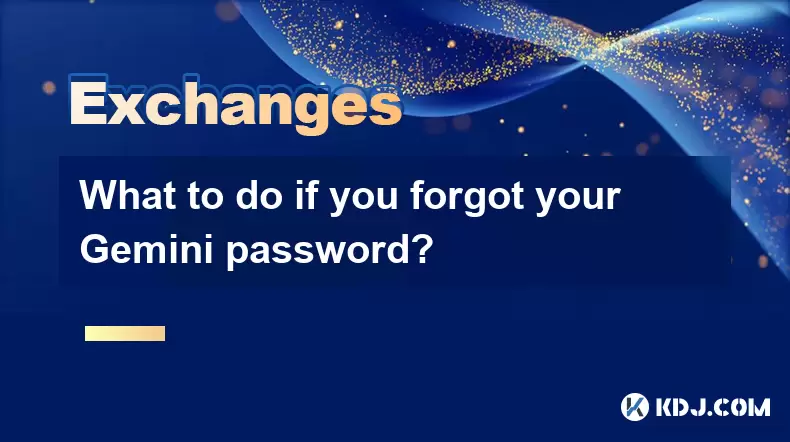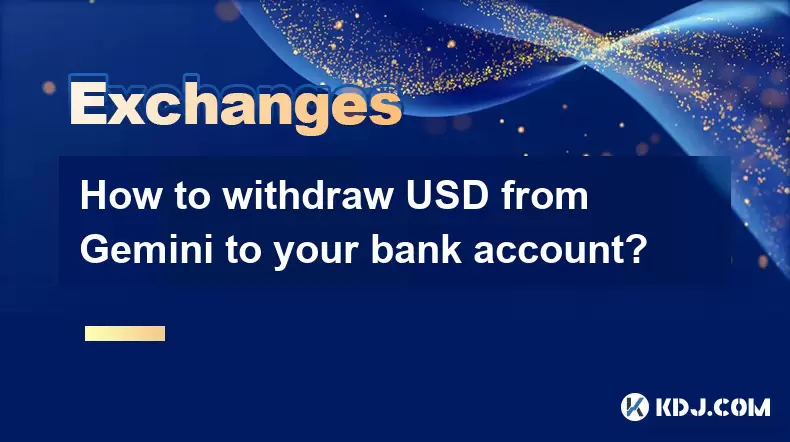-
 Bitcoin
Bitcoin $114400
1.32% -
 Ethereum
Ethereum $3499
2.20% -
 XRP
XRP $2.922
4.26% -
 Tether USDt
Tether USDt $0.0000
0.03% -
 BNB
BNB $752.6
1.53% -
 Solana
Solana $161.8
1.64% -
 USDC
USDC $0.9999
0.01% -
 TRON
TRON $0.3267
1.32% -
 Dogecoin
Dogecoin $0.1991
3.02% -
 Cardano
Cardano $0.7251
3.29% -
 Hyperliquid
Hyperliquid $38.32
3.36% -
 Stellar
Stellar $0.3972
7.58% -
 Sui
Sui $3.437
2.74% -
 Chainlink
Chainlink $16.29
3.65% -
 Bitcoin Cash
Bitcoin Cash $545.3
3.70% -
 Hedera
Hedera $0.2482
7.49% -
 Ethena USDe
Ethena USDe $1.001
0.03% -
 Avalanche
Avalanche $21.40
2.02% -
 Toncoin
Toncoin $3.579
1.56% -
 Litecoin
Litecoin $109.3
2.20% -
 UNUS SED LEO
UNUS SED LEO $8.951
-0.18% -
 Shiba Inu
Shiba Inu $0.00001220
2.75% -
 Polkadot
Polkadot $3.613
2.99% -
 Uniswap
Uniswap $9.173
3.78% -
 Monero
Monero $302.6
2.62% -
 Dai
Dai $0.0000
0.00% -
 Bitget Token
Bitget Token $4.320
1.52% -
 Pepe
Pepe $0.00001048
3.40% -
 Cronos
Cronos $0.1314
4.33% -
 Aave
Aave $259.4
3.54%
Why does Binance require KYC (Know Your Customer)?
Binance requires KYC verification to comply with global AML and CTF regulations, enhance account security, prevent fraud, and enable full access to trading features.
Jul 07, 2025 at 11:43 am

What Is KYC in the Context of Binance?
KYC, or Know Your Customer, is a regulatory requirement that mandates financial institutions and service providers to verify the identity of their users. In the context of Binance, one of the world’s largest cryptocurrency exchanges, KYC procedures are implemented to comply with anti-money laundering (AML) laws and counter-terrorism financing (CTF) regulations.
These processes typically involve collecting personal information such as full name, date of birth, address, and government-issued identification documents like passports or national ID cards. By performing these checks, Binance ensures it operates within legal frameworks set by various jurisdictions where it offers services.
Legal Compliance and Regulatory Pressures
One of the primary reasons Binance requires KYC verification is due to increasing global regulatory scrutiny on cryptocurrency platforms. Governments and financial watchdogs across the globe have introduced stricter rules to monitor digital asset transactions and prevent illicit activities.
For example, in countries like the United States, Japan, and members of the European Union, crypto exchanges are required by law to perform KYC checks before allowing users to trade or withdraw funds. Failure to adhere to these laws can result in hefty fines or even the suspension of operations in those regions.
Additionally, the Financial Action Task Force (FATF) has issued guidelines urging virtual asset service providers (VASPs), including exchanges like Binance, to implement robust KYC protocols. These guidelines have become a de facto standard for many countries adapting their local crypto regulations.
User Security and Risk Mitigation
Beyond compliance, Binance also uses KYC as a tool to enhance user account security and reduce risks associated with fraudulent behavior. Verifying identities helps prevent unauthorized access, account takeovers, and phishing attempts, which are common threats in the digital space.
Moreover, KYC enables Binance to better handle disputes and recover accounts if users lose access. Verified identification allows the platform to authenticate ownership during recovery processes, reducing the likelihood of permanent account loss due to hacking or forgotten credentials.
Another key benefit from a user perspective is the increased functionality unlocked after completing KYC. For instance, non-verified users may face restrictions on withdrawal limits, trading pairs, or fiat on-ramp capabilities. Completing KYC lifts many of these limitations, offering a more seamless experience.
Preventing Fraudulent Activities and Money Laundering
A significant reason behind KYC requirements on Binance is to deter criminal elements from using the platform for money laundering, tax evasion, or funding illegal activities. Cryptocurrencies, due to their decentralized and pseudonymous nature, can be exploited for illicit purposes if left unchecked.
By implementing KYC verification steps, Binance creates a traceable link between real-world identities and blockchain transactions, making it harder for bad actors to operate anonymously. This not only protects the integrity of the platform but also contributes to broader financial system stability.
Furthermore, KYC data can be used in conjunction with transaction monitoring systems to flag suspicious behavior, such as unusually large transfers or rapid movement of funds across multiple wallets. These red flags help Binance's compliance team investigate and report potential violations to relevant authorities when necessary.
How Does Binance Implement KYC Verification?
The KYC process on Binance involves several stages. Users are prompted to upload a clear image of a valid ID document, followed by a selfie holding the same document or displaying specific text on screen.
After submission, Binance uses automated systems powered by artificial intelligence to validate the authenticity of the documents provided. If any discrepancies are found, such as signs of tampering or mismatched information, manual review by a human operator may be triggered.
Users should ensure that all submitted documents are legible, unexpired, and match the details entered during registration. Any inconsistency can lead to delays or rejection of the verification request, requiring resubmission.
In some cases, especially for high-volume traders or institutional clients, additional documentation such as proof of address or source of funds may be requested. These extra layers of verification are part of enhanced due diligence (EDD) measures applied to higher-risk profiles.
Frequently Asked Questions
Can I use Binance without completing KYC?
Yes, to a limited extent. Non-KYC verified users can still trade cryptocurrencies but will face restrictions on withdrawals, deposits, and certain features like fiat gateways or futures trading.
Is my personal information safe with Binance after KYC?
Binance employs encryption and secure storage practices to protect user data. However, no online platform is 100% immune to breaches, so users are advised to enable two-factor authentication (2FA) and avoid sharing sensitive information unnecessarily.
Why does KYC sometimes get rejected on Binance?
Common reasons include blurry or incomplete documents, expired IDs, mismatched names, or inconsistent facial recognition in selfies. Users should carefully follow Binance's KYC submission guidelines to avoid rejection.
Does Binance share my KYC data with third parties?
Binance does not share user data with third parties unless legally required to do so by law enforcement or regulatory bodies. The exchange maintains strict privacy policies to safeguard user information.
Disclaimer:info@kdj.com
The information provided is not trading advice. kdj.com does not assume any responsibility for any investments made based on the information provided in this article. Cryptocurrencies are highly volatile and it is highly recommended that you invest with caution after thorough research!
If you believe that the content used on this website infringes your copyright, please contact us immediately (info@kdj.com) and we will delete it promptly.
- Cryptocurrency, Altcoins, and Profit Potential: Navigating the Wild West
- 2025-08-04 14:50:11
- Blue Gold & Crypto: Investing Disruption in Precious Metals
- 2025-08-04 14:30:11
- Japan, Metaplanet, and Bitcoin Acquisition: A New Era of Corporate Treasury?
- 2025-08-04 14:30:11
- Coinbase's Buy Rating & Bitcoin's Bold Future: A Canaccord Genuity Perspective
- 2025-08-04 14:50:11
- Coinbase's Buy Rating Maintained by Rosenblatt Securities: A Deep Dive
- 2025-08-04 14:55:11
- Cryptos, Strategic Choices, High Returns: Navigating the Meme Coin Mania
- 2025-08-04 14:55:11
Related knowledge

How to set and manage alerts on the Gemini app?
Aug 03,2025 at 11:00am
Understanding the Gemini App Alert SystemThe Gemini app offers users a powerful way to stay informed about their cryptocurrency holdings, price moveme...

How to use the Gemini mobile app to trade on the go?
Aug 04,2025 at 09:14am
Setting Up the Gemini Mobile AppTo begin trading on the go using the Gemini mobile app, the first step is installing the application on your smartphon...

What to do if you forgot your Gemini password?
Aug 04,2025 at 03:42am
Understanding the Role of Passwords in Gemini AccountsWhen using Gemini, a regulated cryptocurrency exchange platform, your password serves as one of ...

What are the websocket feeds available from the Gemini API?
Aug 03,2025 at 07:43pm
Overview of Gemini WebSocket FeedsThe Gemini API provides real-time market data through its WebSocket feeds, enabling developers and traders to receiv...

How to withdraw USD from Gemini to your bank account?
Aug 04,2025 at 11:01am
Understanding Gemini and USD WithdrawalsGemini is a regulated cryptocurrency exchange platform that allows users to buy, sell, trade, and store digita...

How to manage your portfolio on Gemini?
Aug 03,2025 at 10:36am
Accessing Your Gemini Portfolio DashboardTo begin managing your portfolio on Gemini, you must first log in to your account through the official websit...

How to set and manage alerts on the Gemini app?
Aug 03,2025 at 11:00am
Understanding the Gemini App Alert SystemThe Gemini app offers users a powerful way to stay informed about their cryptocurrency holdings, price moveme...

How to use the Gemini mobile app to trade on the go?
Aug 04,2025 at 09:14am
Setting Up the Gemini Mobile AppTo begin trading on the go using the Gemini mobile app, the first step is installing the application on your smartphon...

What to do if you forgot your Gemini password?
Aug 04,2025 at 03:42am
Understanding the Role of Passwords in Gemini AccountsWhen using Gemini, a regulated cryptocurrency exchange platform, your password serves as one of ...

What are the websocket feeds available from the Gemini API?
Aug 03,2025 at 07:43pm
Overview of Gemini WebSocket FeedsThe Gemini API provides real-time market data through its WebSocket feeds, enabling developers and traders to receiv...

How to withdraw USD from Gemini to your bank account?
Aug 04,2025 at 11:01am
Understanding Gemini and USD WithdrawalsGemini is a regulated cryptocurrency exchange platform that allows users to buy, sell, trade, and store digita...

How to manage your portfolio on Gemini?
Aug 03,2025 at 10:36am
Accessing Your Gemini Portfolio DashboardTo begin managing your portfolio on Gemini, you must first log in to your account through the official websit...
See all articles

























































































